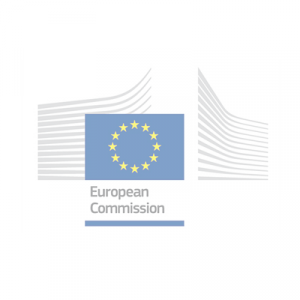
UBITECH is participating at the kick-off meeting, in Berlin, Germany (January 21-23, 2020), of the DataVaults Innovation Action, officially started on January 1st, 2020. The project is funded by European Commission under Horizon 2020 Programme (Grant Agreement No. 871755) and spans on the period January 2020 – December 2022. The DataVaults project aims to deliver a framework and a platform that has personal data, coming from diverse sources (wearables, web APIs, smart home sensors, personal data records, etc) in its centre and that defines secure, trusted and privacy preserving mechanismsallowing individuals to take ownership and control of their data and share them at will, through flexible data sharing and fair compensation schemes with other entities (companies or not). The overall approach will rejuvenate the personal data value chain, which could from now on be seen as a multi-sided and multi-tier ecosystem governed and regulated by smart contracts which safeguard personal data ownership, privacy and usage and attribute value to all entities that generate value within this chain and especially data owners. Within DataVaults, UBITECH drives the platform integration as well as the implementation of the Risk Management Monitor, which is a service that offers near real-time monitoring and evaluation the privacy risks of an individual, the Privacy Metrics Dashboard, which displays the information coming out of the Risk Management Monitor service and gives to each individual a clear and comprehensive view of their current and privacy exposure degrees, and the lightweight Edge Analytics Engine, responsible for running analytics at the edge, in case maximum privacy is necessary and there is only a request to share insights that can be generated in the user’s device.
As a matter of fact, an effective risk evaluation, a concrete meta-model regarding the calculation of risks that are related with the data sharing will be provided. More specifically, the following concepts along with their relationships are going to be formalised: a) the types of data sets shared in the DataVaults Platform, b) their properties (volume, value, security level, privacy level) c) their interlinks and dependencies d) the possible risks that are related with their properties which quantify the possibility of exposing an individual (such as possible data breach incidents), e) threats that relate to risks. The model will be used in order to serialize all information that is required in order to perform the (re)-calculation of relevant risks that may lead to a (possible) dynamic update of pre-defined access policies. Following, an engine which will produce risk quantification calculations will be developed. The primary input of this engine is a valid instance of the meta-model. The engine will be multi-threaded by-design since each separate risk requires different set of calculations. It should be noted that responsiveness is a critical aspect of the calculation engine. To this end, the Drools highly efficient expert system will be used as a cornerstone component of the engine which implies that the model instances will be transformed in executable rules. As any expert system, the developed engine will be able to be used in two modes: a) the forward-inferencing mode according to which the quantification will be a direct product of the as-is setup and b) the reverse-inferencing mode according to which the engine will be provided a goal for a specific risk and the engine will propose a set of controls that have to be enforced. On the other hand, the dashboard will incorporate an intuitive UI in order to enable the user to interact with the Risk Management Monitor service as well as a Policy Access Editor, in order to update the policies that are applied to the different datasets which guide the creation of the smart contracts, indicating how the data (or the derivatives) can be used, for how long, by whom, etc. Last but not least, UBITECH heavily contributes towards the implementation of the Edge Analytics bundle, generating analytics at the edge in the Personal Data Vault, which are shared to the DataVault Cloud Platform upon request or upon user intent. In particular, the Edge Analytics Engine, a small-scale data insight engine which resides on the edge will be implemented able to conduct in-situ analytics, in case a user decides to share analyses of their data, rather than the raw data. These analytics may also be generated if there is a request to share insights that can be generated in the user’s device.


